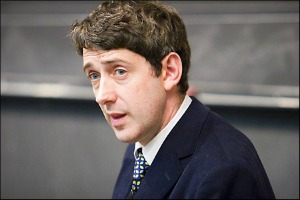Public Lecture: "Evidence Based Peacekeeping in Darfur" by Dr Alex de Waal
10 Oct 2011
On 13 October 2011 (5pm to 7.45pm) in University Place Lecture Theatre A.

On behalf of BWPI, HCRI, and IDPM, we’re delighted to invite you to the inaugural Tri-Institute Lecture "Evidence Based Peacekeeping in Darfur" being presented by guest speaker Alex de Waal.
Programme
| 5pm | BWPI (Professor Rorden Wilkinson), HCRI (Professor Bertrand Taithe), IDPM (Professor David Hulme) |
| 5.20pm | Evidence Based Peacekeeping in Darfur - Dr Alex de Waal |
| 6.05pm | Q&A |
| 7pm | Close |
| 7-7.45pm | Drinks Reception |
This lecture uses data for violent fatalities in Darfur, collected by the Joint Mission Analysis Centre of the UN-AU hybrid mission in Darfur (UNAMID), to examine patterns in lethal violence in that region. The data indicate a complex and multi-sided conflict. The use of this kind of data should be a valuable instrument to assist in the design and implementation of peace support operations. The history of the use of information in the Darfur intervention, however, suggests that such evidence is not always welcome to those who make decisions on such matters.
Alex de Waal is Executive Director of the World Peace Foundation and a research professor at Tufts University. During 2009-11 he served as senior advisor to the African Union High Level Implementation Panel for Sudan and Program Director at the Social Science Research Council. His academic research has focused on issues of famine, conflict and human rights in Africa. He was awarded an OBE in the UK New Year’s Honors List of 2009, was on the list of 27 ‘brave thinkers’ in 2008, and the Atlantic Monthly in 2009.
To register your place, simply email:
-----
BWPI, HCRI and IDPM are leading centres of research and teaching at The University of Manchester. Working in the closely related fields of poverty, conflict and development, they explore and analyse the complex and difficult areas of inequality, peace and progress. This lecture is the first in a series of such events and aims to provide a forum in which these issues can be considered and discussed.
